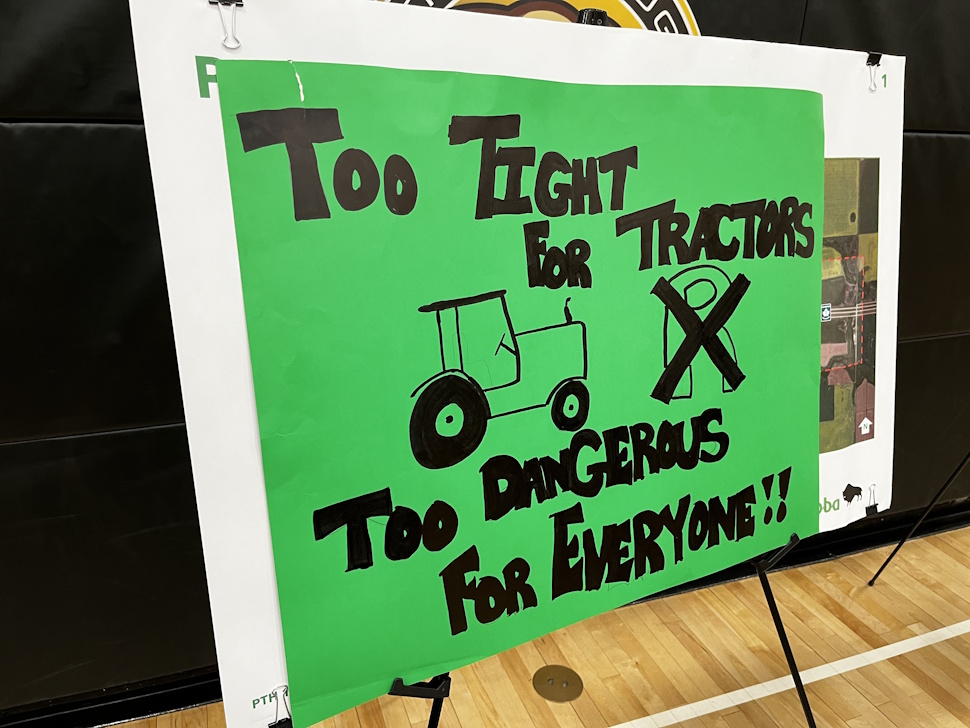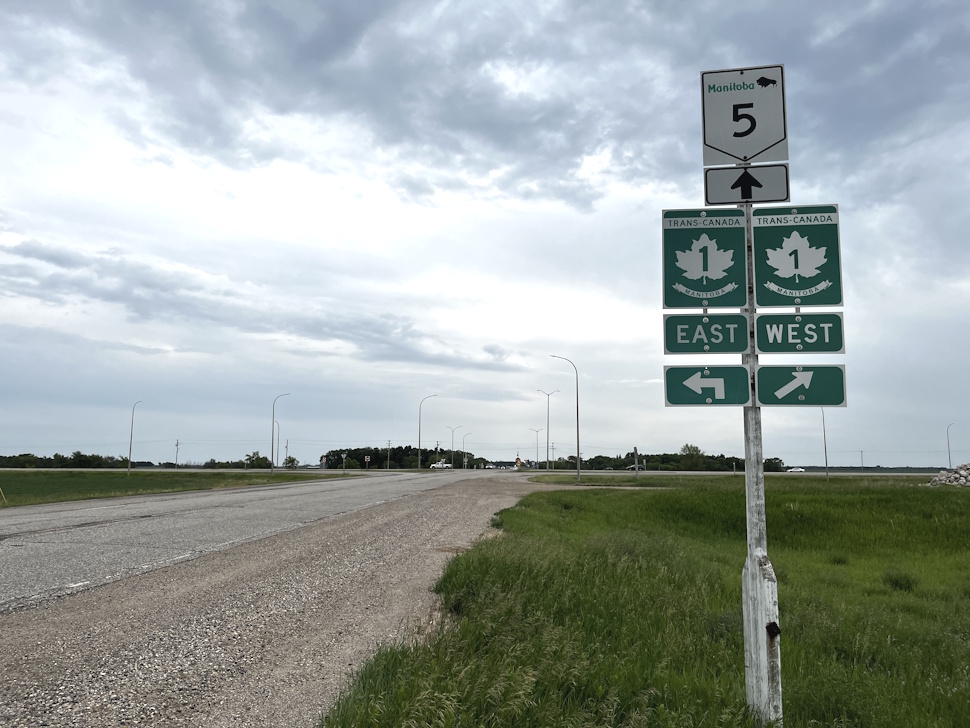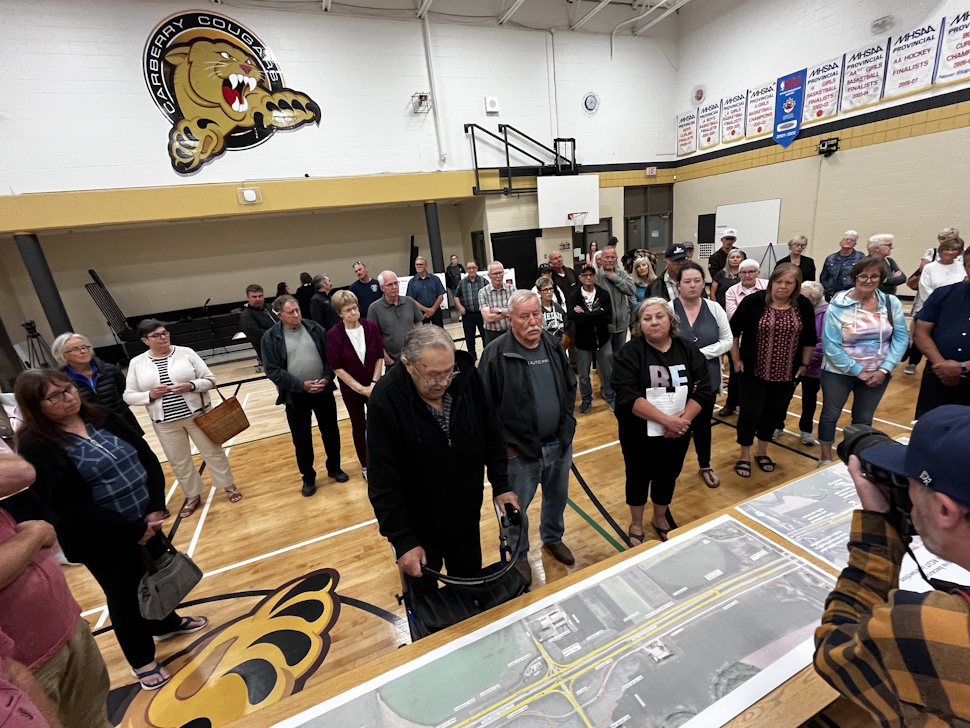Premier Wab Kinew confirms the Manitoba government is backing away from a controversial intersection redesign near Carberry, following overwhelming opposition from residents, farmers, and local leaders.
During an interview with Golden West Broadcasting, Kinew says the province will no longer proceed with the proposed Reduced Conflict U-Turn (RCUT) for the intersection of the Trans-Canada Highway and Highway 5; the site of a tragic 2023 collision that killed 17 people.
Related stories:
- Public outcry grows over RCUT design at deadly Carberry intersection
- Carberry mayor calls for long-overdue overpass
Listening to rural Manitoba
“What we’re announcing today is something that we’re not going to do,” notes Kinew. “It’s really important to our government that we listen to rural Manitoba and folks in Carberry and the surrounding region have made it very clear they do not want this RCUT design.”
An RCUT intersection changes how drivers turn left onto or off of a highway. Instead of turning directly across traffic, drivers first turn right, travel a short distance, and then make a U-turn to head in their intended direction. While the layout can reduce certain types of collisions, many residents argue it doesn’t suit the heavy farm and truck traffic common in rural Manitoba.
The only RCUT intersection design currently in use in Canada is on Highway 16, just outside Saskatoon. This design is more common in parts of the United States, including states like Minnesota, where officials say it improves safety by minimizing conflict points at busy intersections.
Carberry Mayor Ray Muirhead says he was “happy and relieved” to hear the news from the premier last Friday. He adds the decision shows the province is listening to the community’s concerns and the strong public outcry.
“It’s good that they realized this and that they will go back to the drawing board and see what other options they can come up with,” Muirhead remarks.
He credits the community’s united efforts, from petition organizers to local council, for driving the change.
“It speaks volumes to them for standing up, all of the community members and councils. I think when we all band together, we can get action,” he says.

Alternative designs coming
With the RCUT option now off the table, Kinew says the province will begin developing new proposals for the high-traffic rural intersection.
“We’re now going to spend a little bit of time working up some of the alternative approaches,” he says. “Once we have the ability to work out some of the things on our end, in terms of what’s the new budget for this project going to look like, what are some of the concerns around land acquisition, then we’ll share that new design that we’re thinking of with the community.”
Muirhead notes that while the premier hasn’t provided a timeline, he’s hopeful a solution will come sooner rather than later.
“The premier says he wants to ask for a little more time, which I’m willing to do, but we don’t want it to be years, of course,” Muirhead adds. “I hope it’s an overpass. I hope they do it right the first time and just get it done.”
Kinew echoes that reassurance: “We’re not going to leave it hanging for months and months. We’re going to come back and we’re going to say... here’s a design. Here’s a new budget. Here’s a new approach that’s going to put safety first, but also just provide more reassurance and more confidence for people.”
Overpass and widened median still in discussion
Kinew confirms that other long-discussed options, including a widened median or an overpass, are now part of the conversation again.
“Even from the preliminary work, when you’re talking about safety, you do need to include those,” he notes.
The RCUT proposal drew significant backlash due to concerns about its impact on large farm equipment, emergency vehicles, and school buses. While engineers pointed to collision statistics in other provinces, rural residents argued the layout didn’t suit Manitoba’s unique traffic realities.
Muirhead says the tragic 2023 crash that brought attention to the intersection “took that major accident for this to happen.” He hopes the province now “does the right thing and goes forward” with a lasting, permanent fix.

Community voices shape provincial policy
Kinew says the decision to walk away from the RCUT plan demonstrates that community voices can shape provincial policy.
“In government, we’ve always got experts that we work with... but we need to have our democracy; a situation where those experts have to listen to the public,” he continues.
He expresses appreciation for the efforts of grassroots advocates and local elected officials.
“I want to thank the grassroots people who came out to participate in petitions and town halls,” he mentions. “Now, as your provincial government, we’re going to work with that.”
Muirhead says he appreciates the government and consultants’ ongoing efforts, even though disagreements arose.
“I thanked [the premier] for all of his efforts and his continued effort. He’s going to remain in touch with me as the Carberry stakeholder and my council, and I’m assuming the other stakeholders. Hopefully together we can come up with something better,” Muirhead adds.
Kinew concludes by affirming that safety remains the top priority, but so is earning the public’s trust.
“It’s also about the confidence and the reassurance that people have from knowing that their best interests are being taken into account,” he says.
- with files from Chris Sumner
Sign up to get the latest local news headlines delivered directly to your inbox every afternoon.
Send your news tips, story ideas, pictures, and videos to news@portageonline.com.
PortageOnline encourages you to get your news directly from your trusted source by bookmarking this page and downloading the PortageOnline app.
